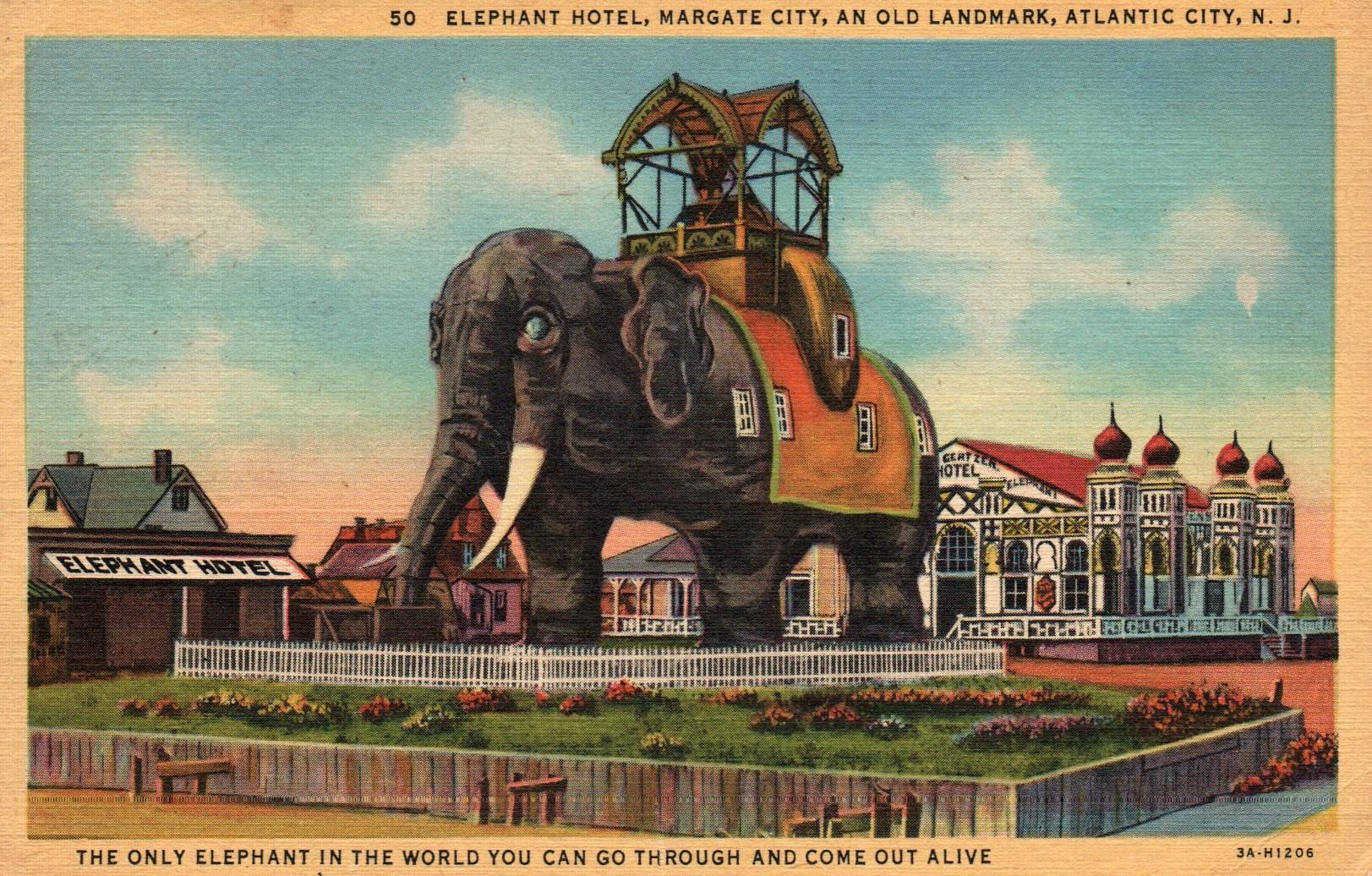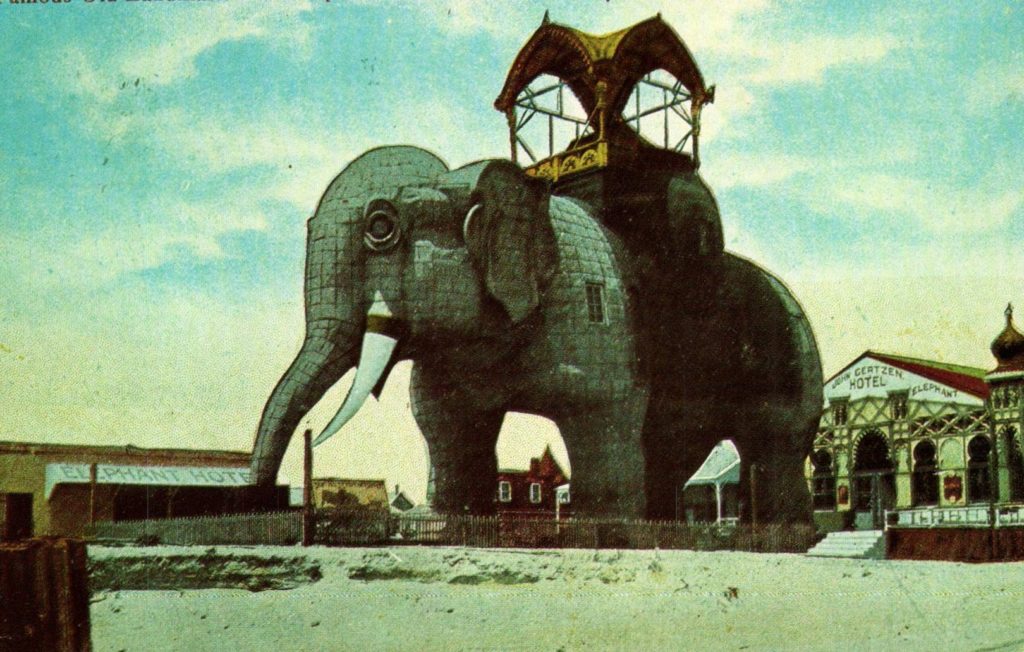
Lucy the Elephant is a National Historic Landmark located in Margate City, New Jersey south of the Atlantic City Boardwalk. It is a six-story elephant-shaped building that was built in 1881 by James Lafferty, a Philadelphia-based inventor and real estate developer. The building was designed as a promotional gimmick to attract attention to the real estate development that Lafferty was building on the beachfront in Margate.
Lucy was originally intended to be used as a summer cottage and observatory, but it was later used as a tavern and office building. The building’s unique elephant shape and size made it a popular tourist attraction, and it quickly became one of the most photographed landmarks in New Jersey.
Over the years, Lucy has undergone several renovations and restorations. In the 1960s, the building was in danger of being demolished, but a group of local residents formed the Save Lucy Committee and successfully campaigned to have the building designated as a National Historic Landmark.
Today, Lucy the Elephant is open to the public as a museum and tourist attraction. Visitors can take a tour of the building and climb to the top for a panoramic view of the surrounding area. The building also houses a gift shop and a small museum dedicated to the history of Margate and the elephant-shaped building.
Lucy the Elephant is considered a classic example of American folk art and it is an example of a form of novelty architecture, which is an architectural style that uses a building’s shape or form to attract attention or generate interest. It is a popular tourist destination, drawing visitors from all over the world.
The Elephant Hotel in Atlantic City, New Jersey has a long and storied history that dates back to the late 19th century. The hotel, which was originally known as the Haddon Hall, was built in 1879 by a man named George C. Boldt. Boldt was a prominent hotelier of his time and had previously built a number of other successful hotels, including the Waldorf Astoria in New York City.
The Haddon Hall was designed in the Victorian style, with ornate architectural features and grand public spaces. It quickly became a popular destination for wealthy vacationers, who came to Atlantic City to enjoy the beaches and the many entertainment options that the city had to offer. The hotel was so successful that it was soon expanded to include a number of additional guest rooms and amenities.
In 1896, the hotel was purchased by a man named Joseph P. Day, who had a vision to create a grand hotel that would rival the best in the world. Day renamed the hotel the Elephant Hotel, in honor of the elephants that were featured in the nearby Steel Pier amusement park. Under Day’s ownership, the hotel was completely renovated and expanded to include over 500 guest rooms, a grand ballroom, and a number of other luxurious amenities.

During the early 20th century, the Elephant Hotel was one of the most popular and successful hotels in Atlantic City. It was known for its elegant and refined atmosphere, as well as its excellent service. Many famous guests, including presidents and celebrities, stayed at the hotel during this time.
However, the Great Depression of the 1930s had a significant impact on the hotel industry, and the Elephant Hotel was no exception. The hotel struggled to maintain its high level of service and luxury, and by the end of the decade, it had fallen into disrepair.
In the 1940s, the hotel was sold and underwent a major renovation. The new owners modernized the guest rooms and public spaces, and the Elephant Hotel once again became a popular destination for vacationers. However, the hotel’s glory days were short-lived, as the rise of air travel and the popularity of other vacation destinations led to a decline in tourism in Atlantic City.
By the 1970s, the Elephant Hotel had fallen into disrepair once again, and it was eventually closed in the 1980s. The building sat vacant for several years, and many people feared that it would be demolished.
However, in the early 2000s, a group of developers purchased the Elephant Hotel and began a multi-million dollar restoration project. The hotel was completely restored to its former glory, and it once again became a popular destination for vacationers. Today, the Elephant Hotel is a National Historic Landmark and is considered one of the most important architectural examples of Victorian-era architecture in the United States.

